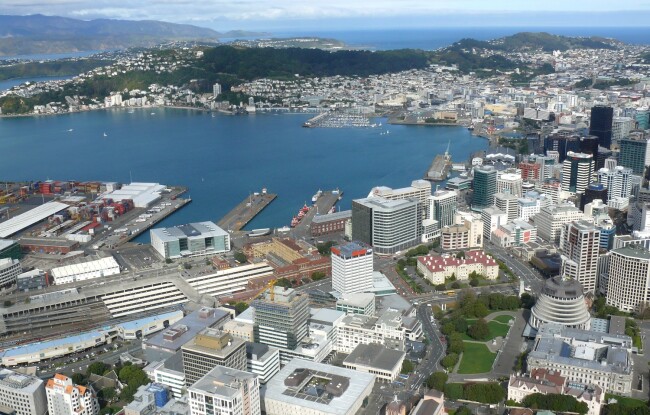W(h)ither New Zealand’s Productivity?

On the eve of the closure of the Productivity Commission, Dr Ganesh Nana, lays down the wero for the organisation or institution designated and resourced to face up to the productivity challenge that remains every present.
The Productivity Commission was a unique agency/organisation in the New Zealand public sector landscape. It provided advice to Ministers that was not available through other agencies. Its distinguishing features were its ability to take a long-term view on the complex challenges facing the economy over the coming years, embracing cross-agency, cross-discipline, and cross-sector perspectives.
Its advice was independent of sector or agency vested interests, consistent with its Independent Crown Entity mandate and purpose. Such arms-length advice is critical for Ministers, who are otherwise inevitably driven by calls and advice for ‘urgent and immediate’, or ad hoc, intervention(s). Short-term, ad hoc, policy interventions (or regulatory modifications, additions, or removals) will not deliver the shift in the dial that most agree is required. In the absence of such inconvenient voices, the considered and strategic view of challenges that a nation’s governance must address remains at risk of going missing in action.
The Commission’s approaches and perspectives remained closely aligned to its legislated purpose of advising on “… improving productivity in a way that is directed to support the overall wellbeing of New Zealanders having regards to a wide range of communities of interest and population groups in New Zealand society”. A broader and longer-term perspective was required given that future generations are one of those population groups.
The breadth of reach of the Productivity Commission – built through regular formal and informal submissions and engagements across business, community, Māori, and worker groups – provided a unique lens for productivity-focussed kōrero and policy advice.
As well as engaging with business and community groups, the Commission’s advice was importantly grounded in strong and robust evidence and data and the mandate to rigorously interrogate such data and evidence. A range of highly-skilled and experienced econometricians, statisticians and users of Statistics NZ and other data sources (including hands-on users of the IDI and LBD), alongside economists, policy analysts and specialists made up multi-disciplinary teams to pose the inconvenient questions. Sadly, the loss of such a team to the institutional landscape of the country is reflected in its lack of appetite for research and evidence-based long-term investments in people, place, and productivity in Aotearoa.

While the Commission may now be gone, facing up to the productivity challenge remains ever present.
The context of a global economy with a waning appetite for the rules-based order for free trade, alongside increasingly-binding climate and other resource-based constraints to activity, make a considered and strategic view of productivity policy critical.
Papatūānuku is overheating and several planetary boundaries have already been overshot. The lasting impacts from a global pandemic should not be under-estimated. Persistent disadvantage is being embedded across generations, geo-political tensions are rife, and people and their communities are feeling increasingly disconnected from the centres of economic power and decision-making. The social cohesion and licence of businesses to operate, that have been taken for granted for so long, are now visibly threadbare.
Marginal and peripheral policy and regulatory changes ignore the connected and simultaneous nature of the polycrisis we face. Recognising, embracing, preparing, and responding to these influences require shifts in thinking, approaches, models, and behaviours and an openness to novel and innovative methods. A broader acceptance (and understanding) of the productivity imperative, and acceptance of necessary changes (including policies, perspectives, and behaviours), will be required. This includes an understanding of improved productivity beyond that of increased revenue, higher profitability, or growth in spending.
In the absence of an entity at arms-length to Ministers and government driving such inconvenient research, analysis, kōrero and advice, I await the organisation or institution designated and resourced to pick up this wero.
